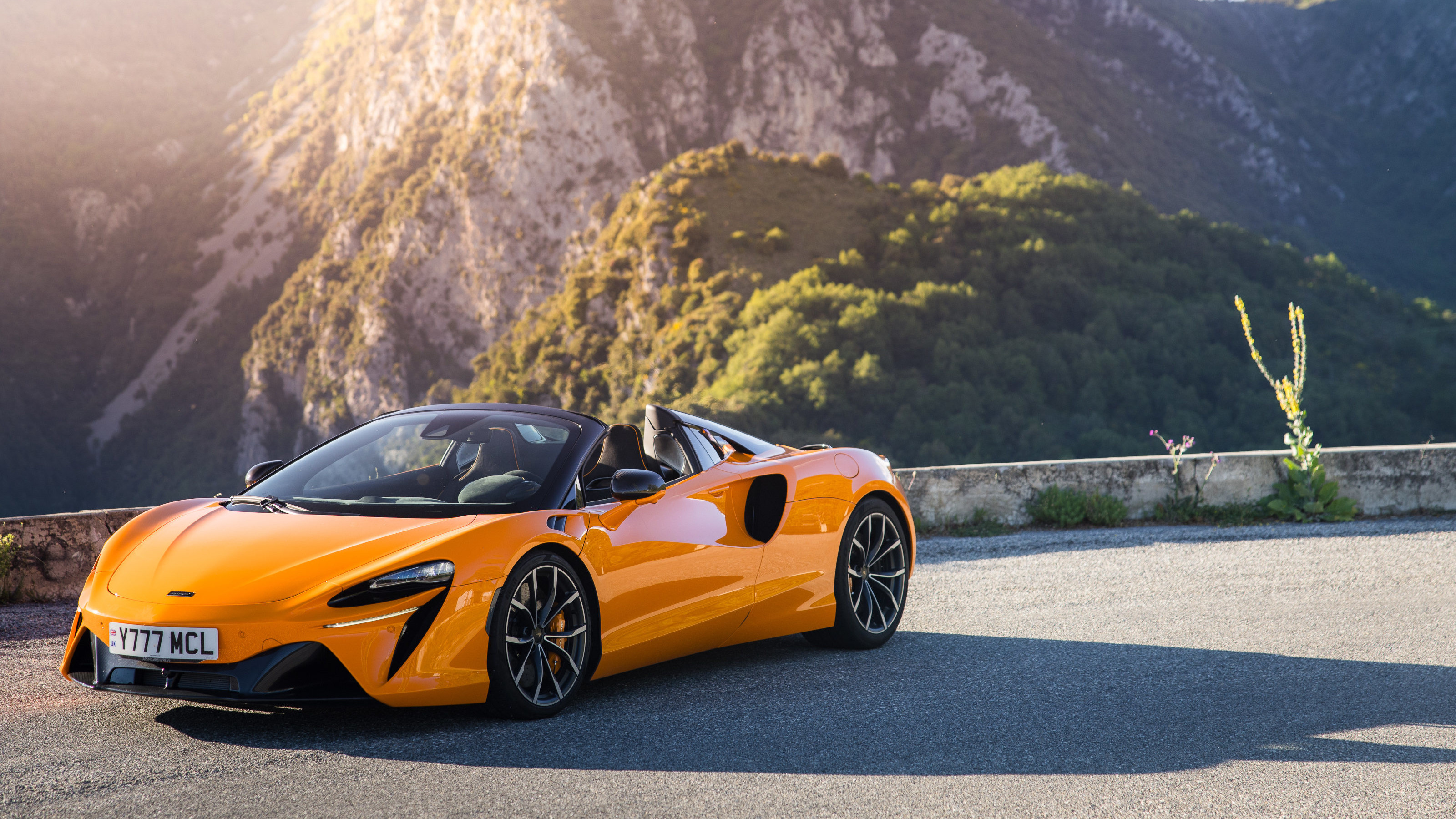
The McLaren Artura Spider joined the Woking-based supercar maker’s line-up in early 2024, a sister car to the acclaimed Artura. As is traditional with such matters, both Spider and fixed-head car were developed simultaneously, with the added complexity of the former baked into the already fiendishly technical brief for what is the McLaren’s first ‘High-Performance Hybrid convertible’.
Driving the McLaren Artura Spider
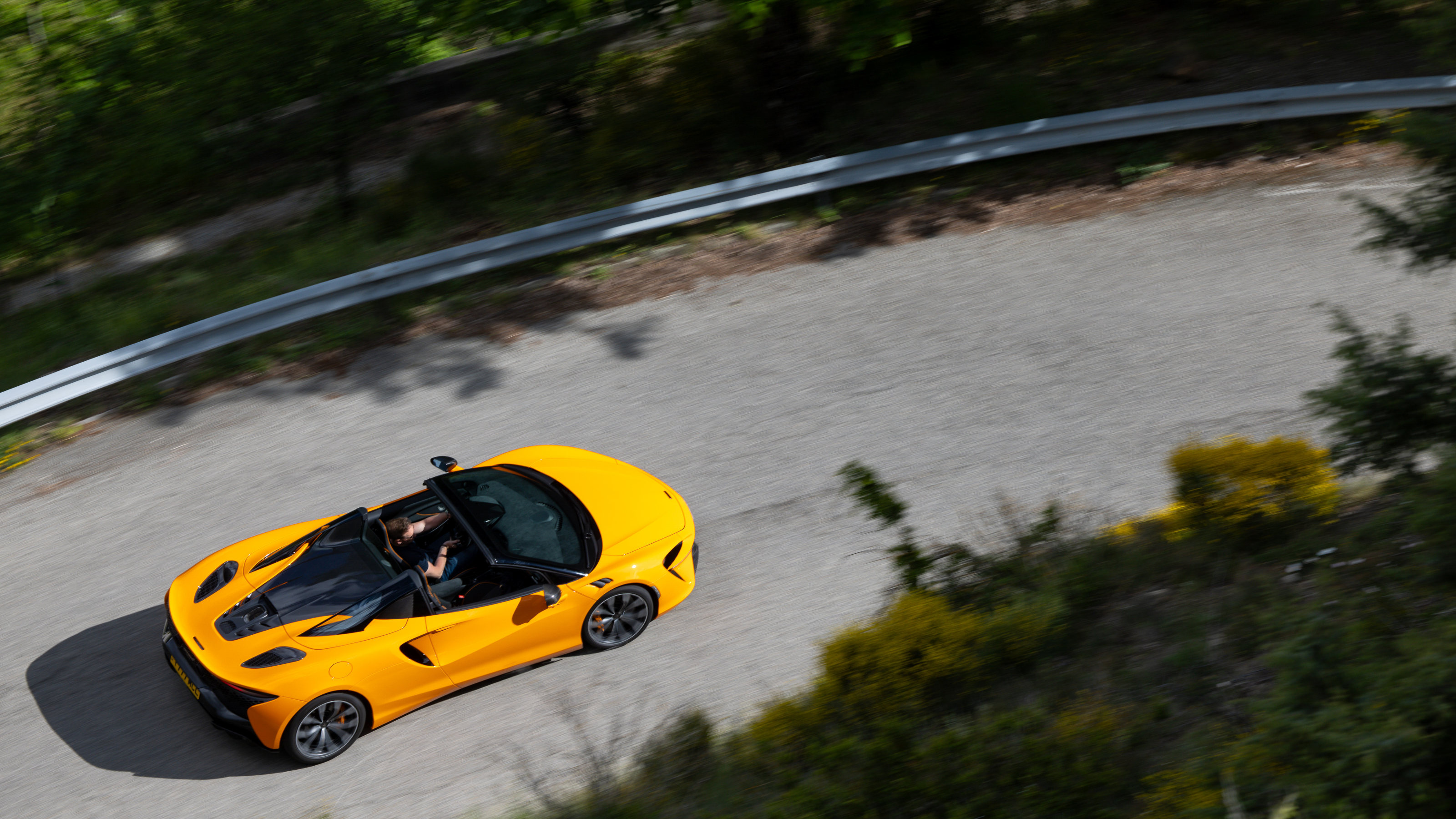
We spent a few days in the company of the Artura Spider, making the most of the hot, dry tail-end of summer and wondering why anyone would order a supercar with a roof. Now that autumn has rolled around and perpetual rainfall is on the calendar, does a 700PS droptop continue to make any sense?
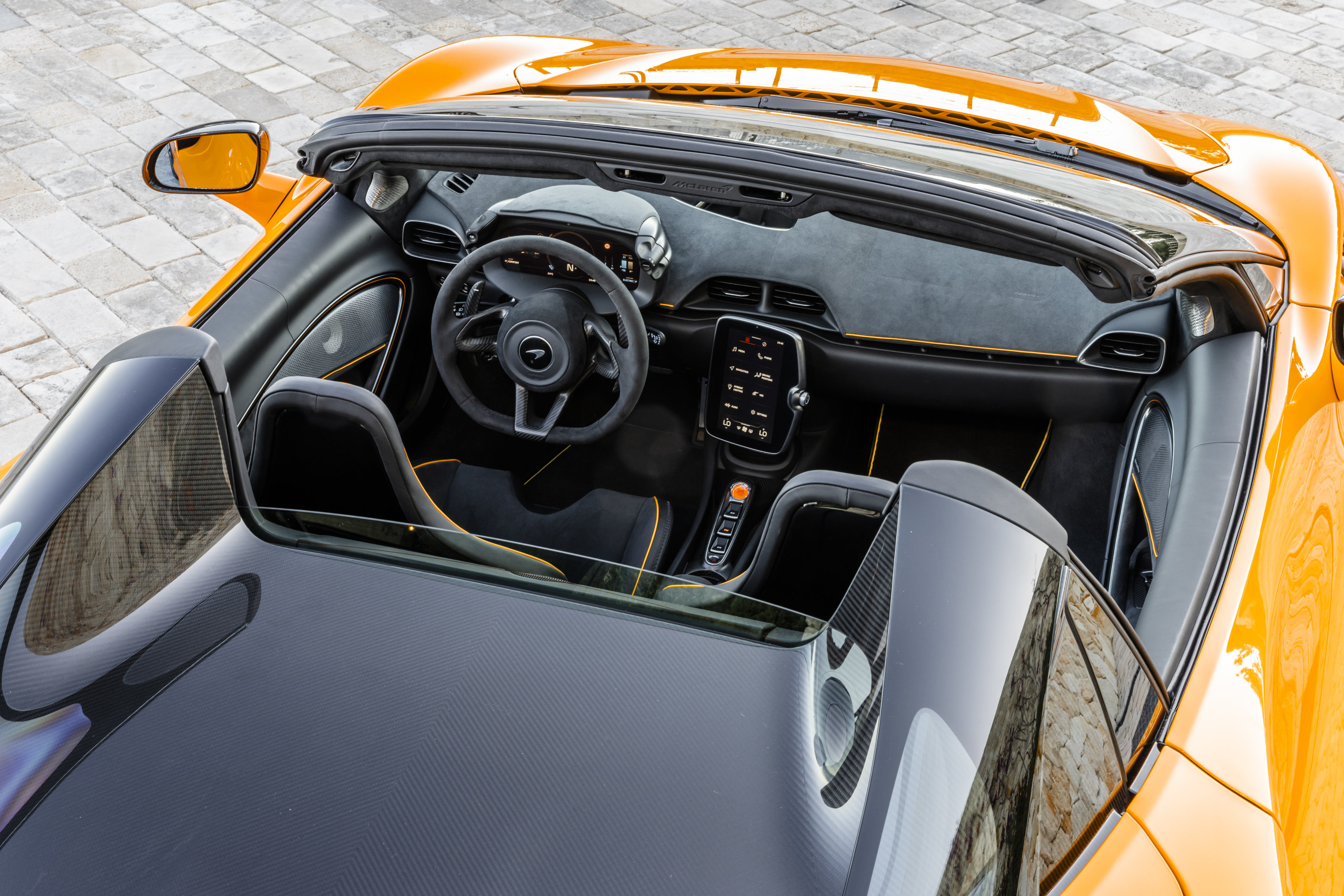
The first point is to consider the conflicting reasons why supercar owners opt for convertible versions. Car manufacturers make great virtue of the fact that an absence of roof increases engagement, both to the sense of speed and the sound of the engine, but also with your surroundings. This is undeniably true. But consider too the ego of the convertible driver. This is motoring at its most self-conscious, a statement of taste and character that requires a strong sense of self belief.
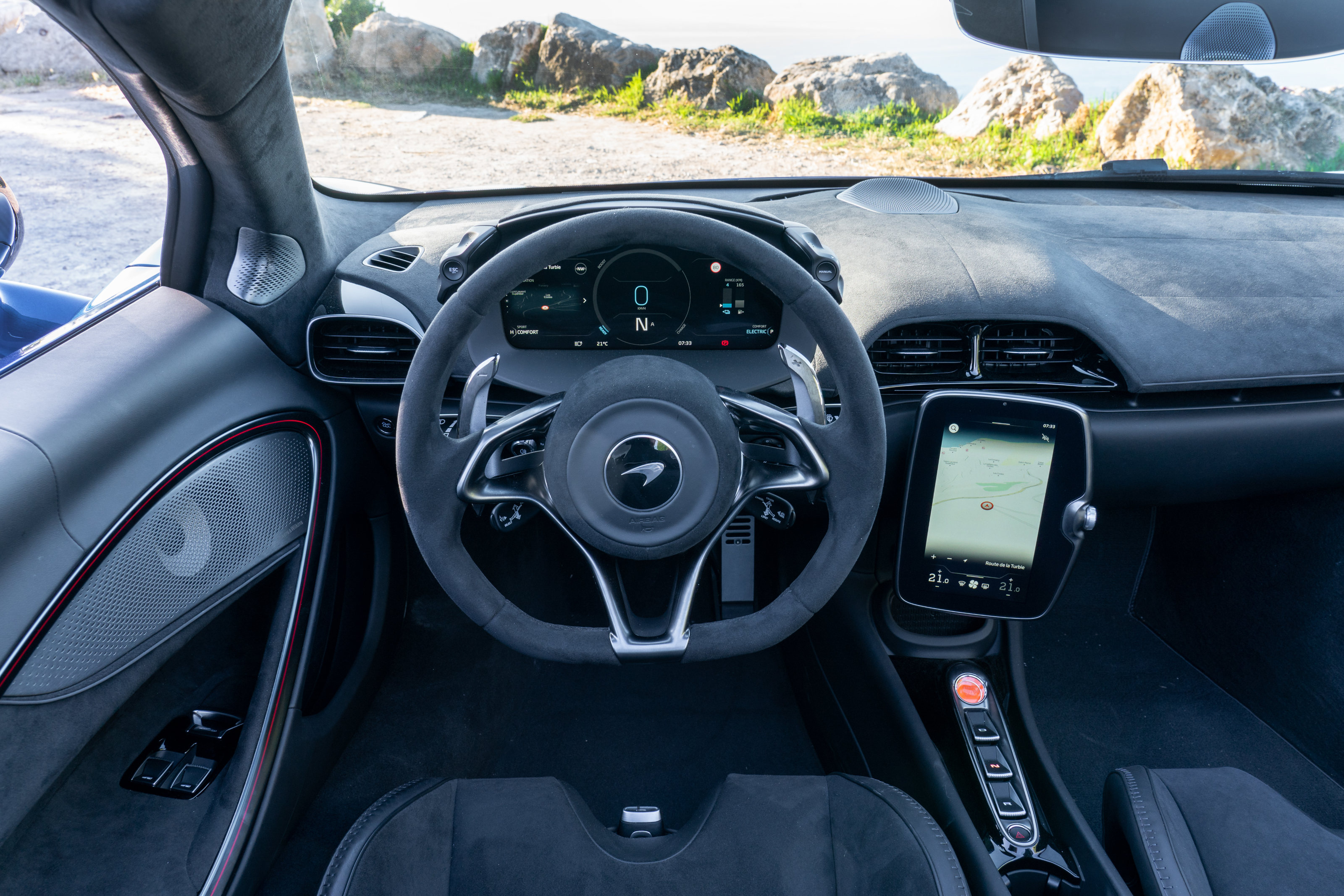
Like many droptop supercars, the Artura embraces these contractions; it is a car for an egoist devoted to their own sensual enjoyment. If that sounds a bit dismissive, bear with us. There’s nothing like an ostentatious automotive display of wealth to raise the hackles of your fellow road users, but the Artura has a couple of aces up its sleeve.
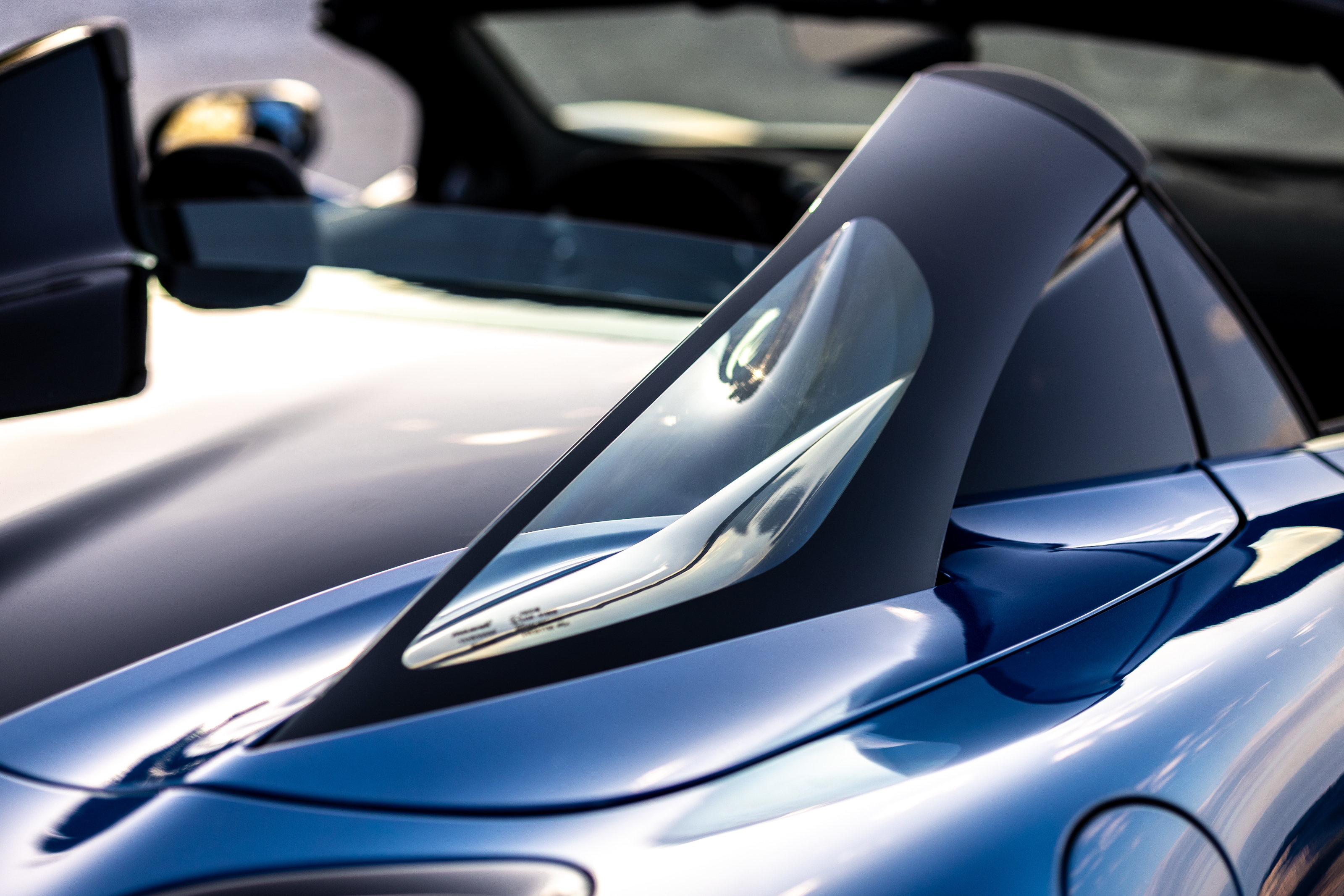
For one, it’s hybridised, which means not every journey need be a sonorous paean to the glories of combustion. Fast car owners sometimes give the impression that the raucous bubble of noise that envelops them and their immediate surroundings is a form of public service broadcasting.
Granted, there’s a small minority who enjoy hearing a screaming engine and a popping exhaust away from the context of a track or car show. It’s a niche passion, and a dwindling one. Although the Artura Spider can only manage 21 electrified miles before the V6 engine kicks back in, you should savour every one of them, for one thing this car cannot claim to be is visual pollution.
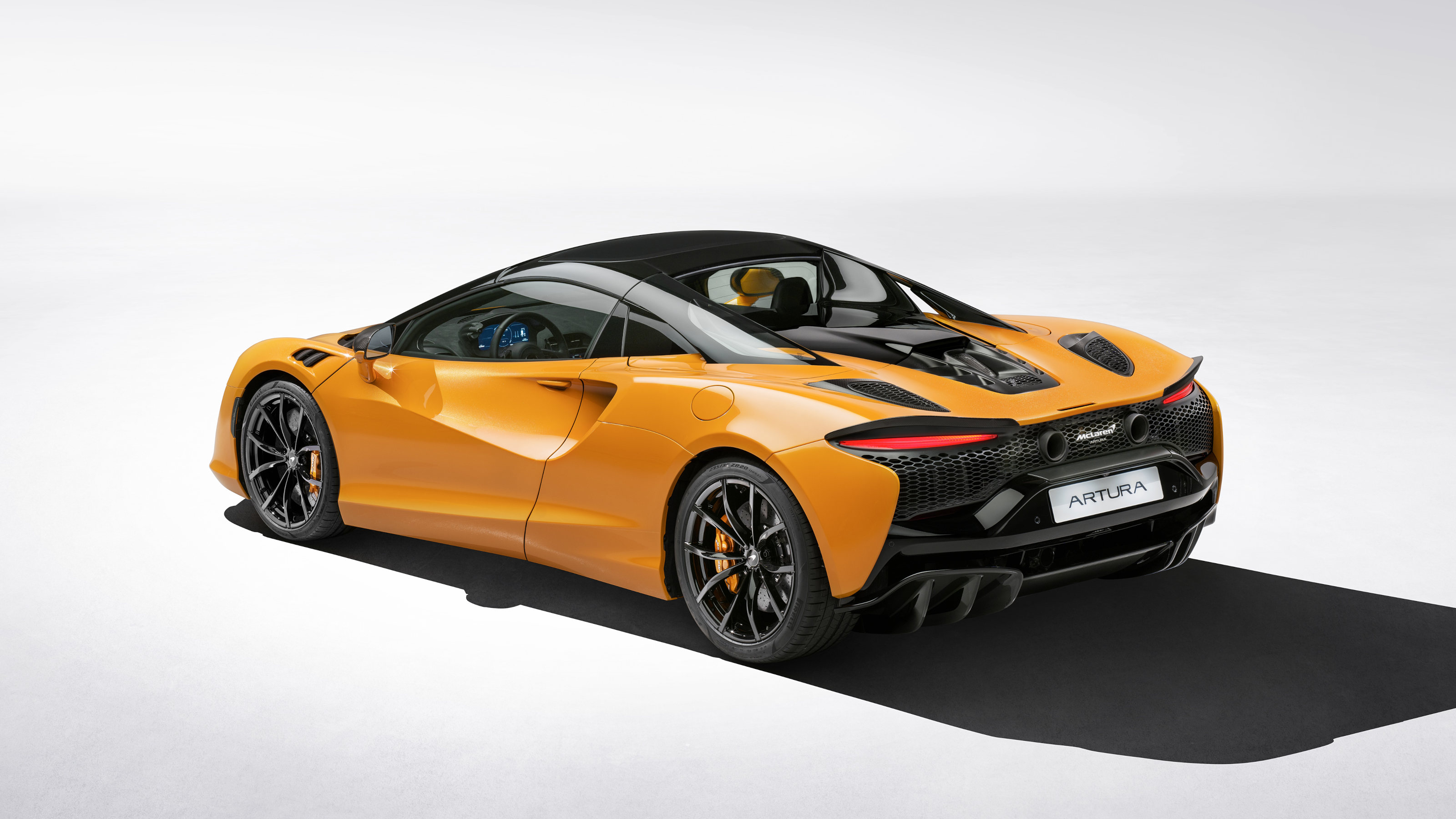
The Artura continues McLaren’s weirdly polarising design journey. Without the magnificent legacy of a company like Ferrari or Lamborghini, the British manufacturer has often faced charges of being rather generic in its design approach. Supercars are shaped the way they are because of certain immutable elements; an engine in the middle, low frontal area, space for two and minimal luggage, and everything else given over to aerodynamics, cooling and suspension.
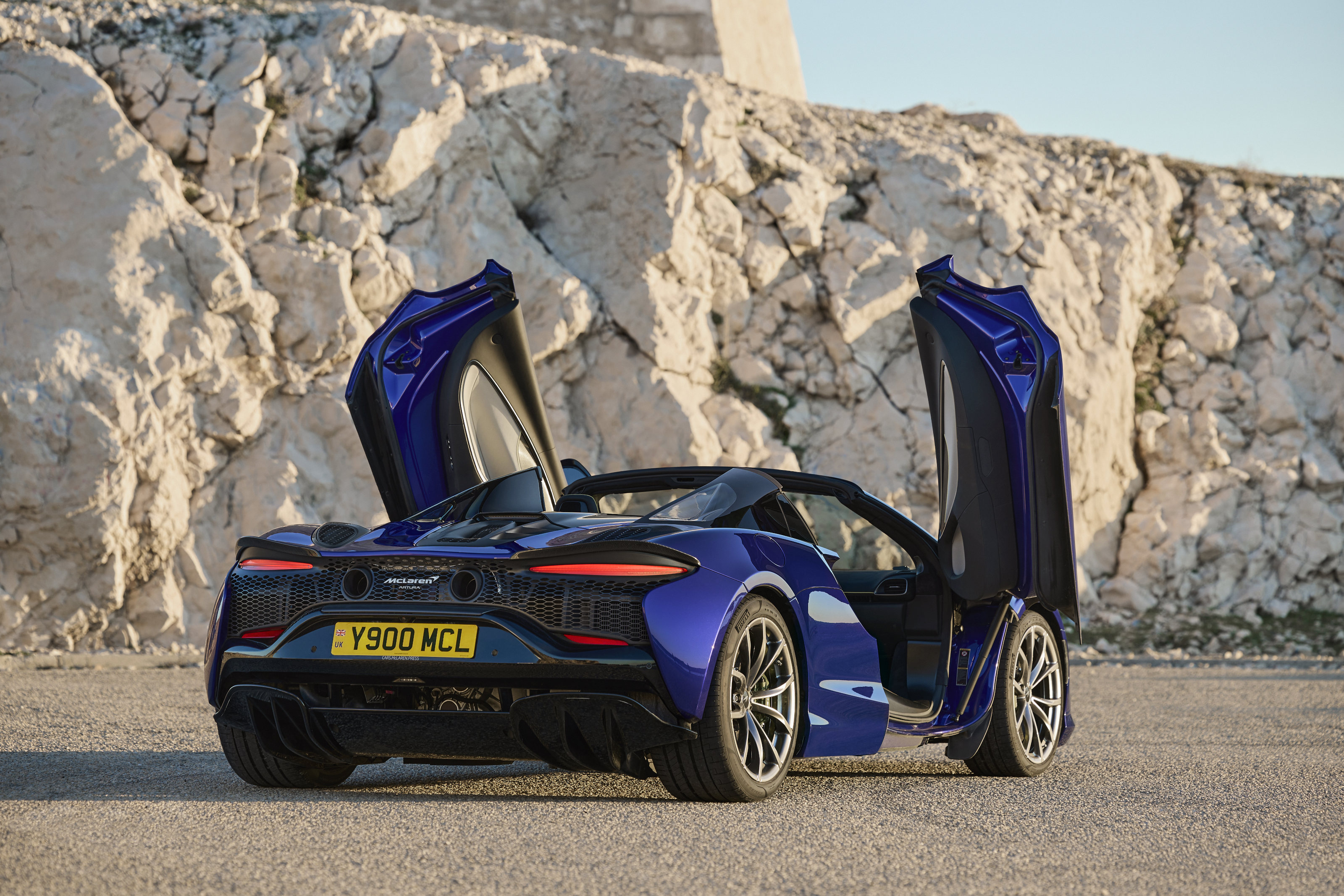
Throw in complexities like a carbon fibre tub, folding mechanical roof and a 7.4kwh battery pack, and the human and emotional characteristics that one might find in the flowing elegance of a hand-beaten aluminium panel shaped by an Italian carrozzeria are suddenly thin on the ground. It feels churlish to say so, but the fact that the Artura succeeds as a desirable design object is largely a result of cultural condition – a fast, expensive, brightly coloured low-slung sports car. It’s by no means ugly, but purpose, rather than poise, is the defining quality. Aesthetics comes later.
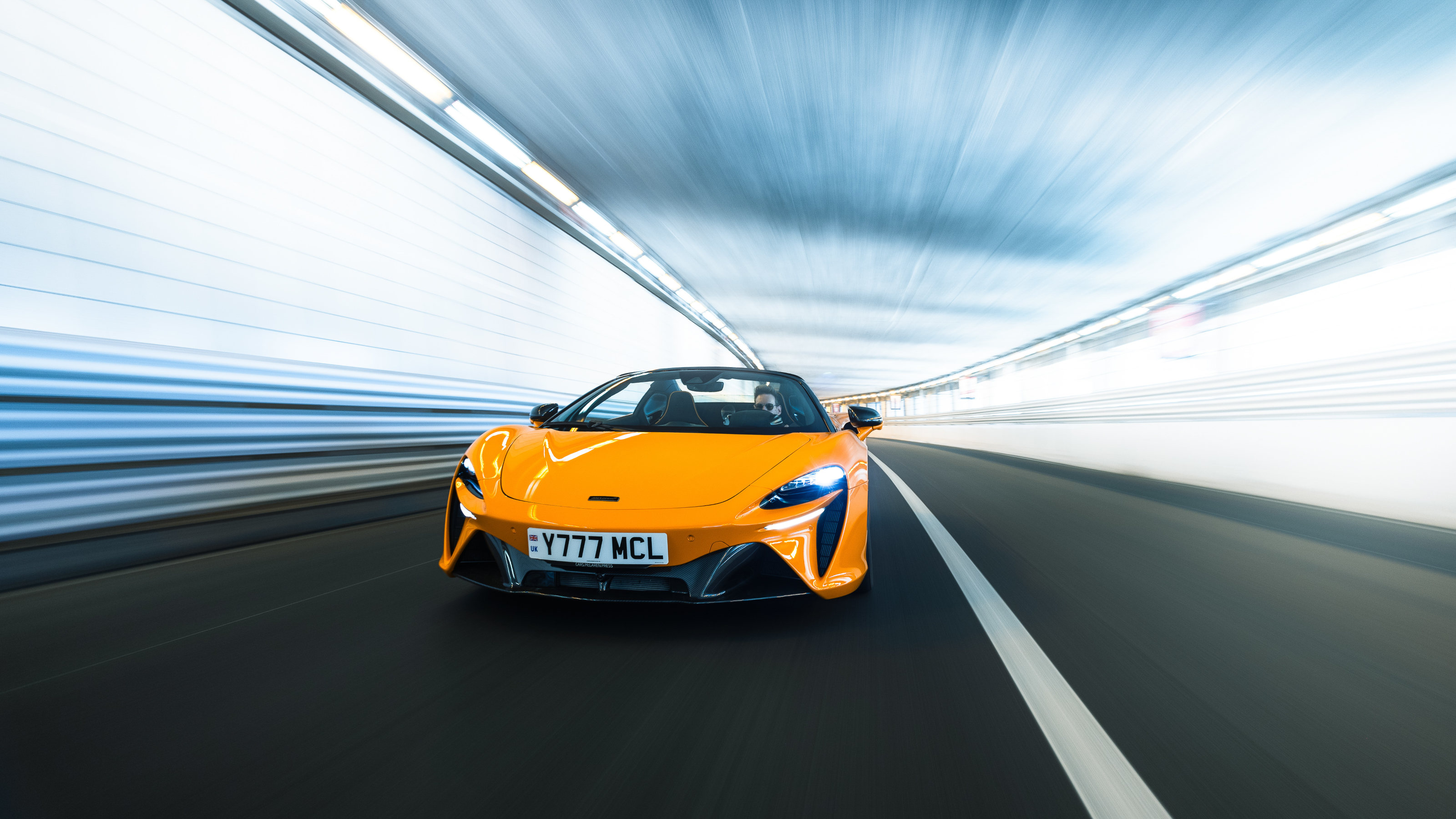
True supercar afficionados skip small fry like the Artura and go straight to limited editions and bespoke creations. For McLaren, this means the new McLaren W1, up against the likes of Ferrari’s recently announced F80. The presence of these multi-million-pound exercises in technical sophistication make the everyday production models like the Artura and Ferrari 296 seem almost pedestrian in comparison, costing as they do about a tenth of the price. At the risk of being even more contentious, we think these limited-edition machines are even more lacking in the heart-stopping beauty department.
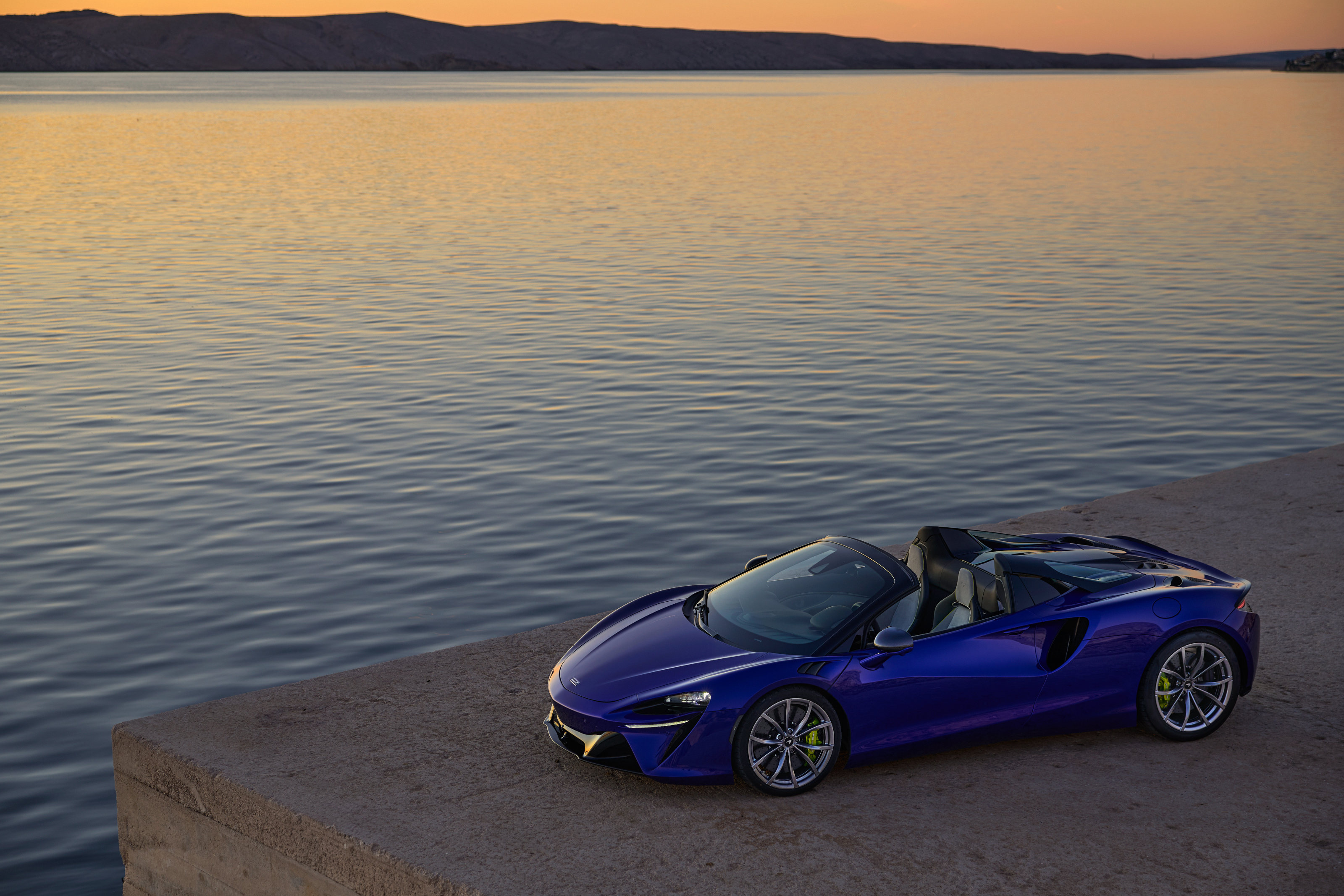
Think of the Artura in terms of a finely tuned piece of machinery and it makes much more sense. If you must enjoy the ‘crescendo of sound from [the] redesigned exhaust [that] envelops [the] driver,’ please do so away from built up areas. You’d be mad not to, for the engine and battery put out 700PS in total, enough for a three second dash to 100km/h, with 200km/h reached in just 8.4 seconds. Top speed is an irrelevant but ego-bolstering 205mph. A more useful statistic is the 11 seconds it takes to drop the roof, as well as the much improved fuel economy one gets from a hybrid machine.
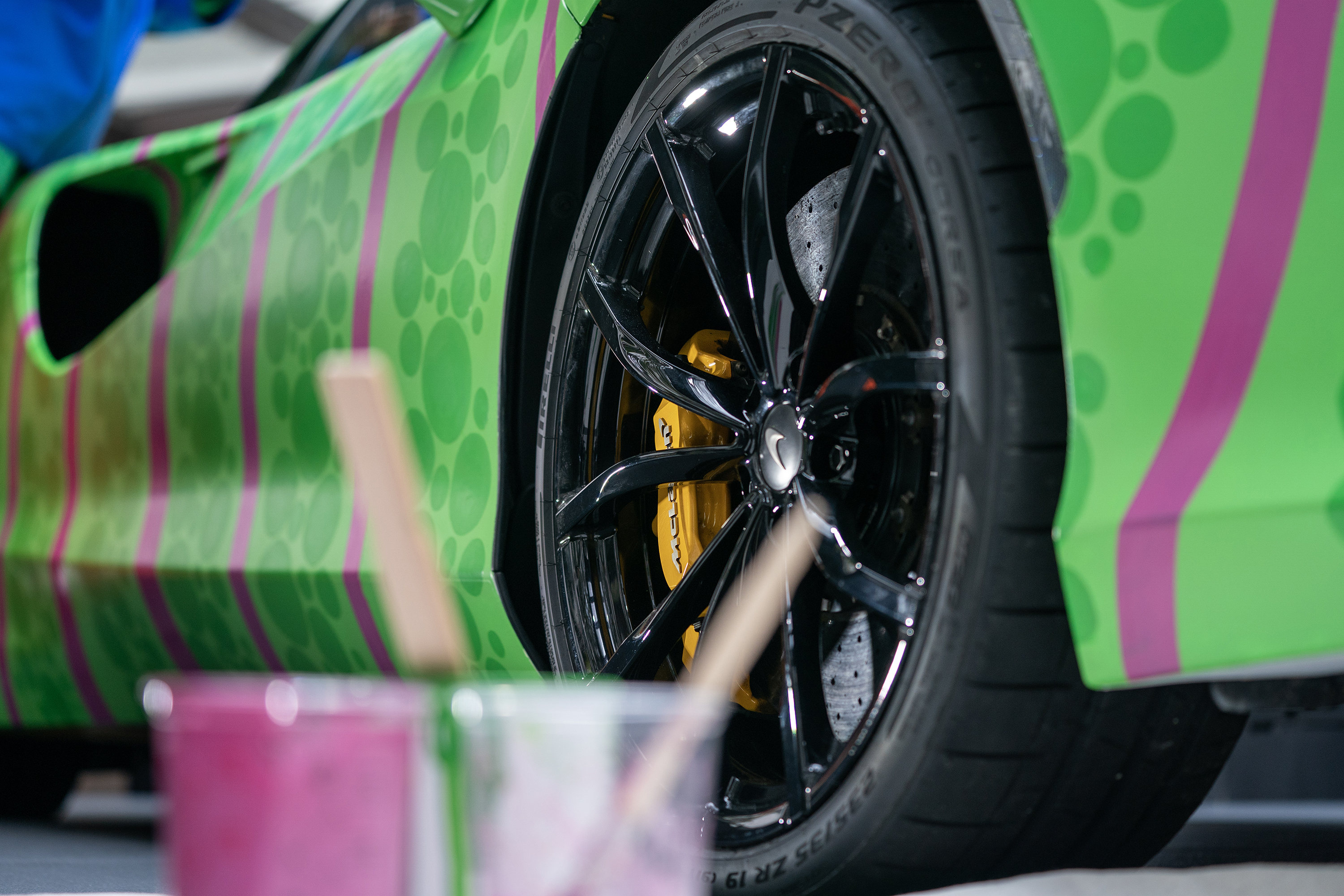
All that capacity and nowhere to deploy it might be a recipe for frustration, but in all our time with the Artura we never felt vexed or hamstrung by the conditions. Top down at motorway speeds was refined and unruffled. Being able to switch to EV mode to glide silently through a village felt both satisfying and benevolent. And on the rare occasion when the road opened up sufficiently to explore the Artura’s power, the perfect balance and poise made for a very unflustered experience.
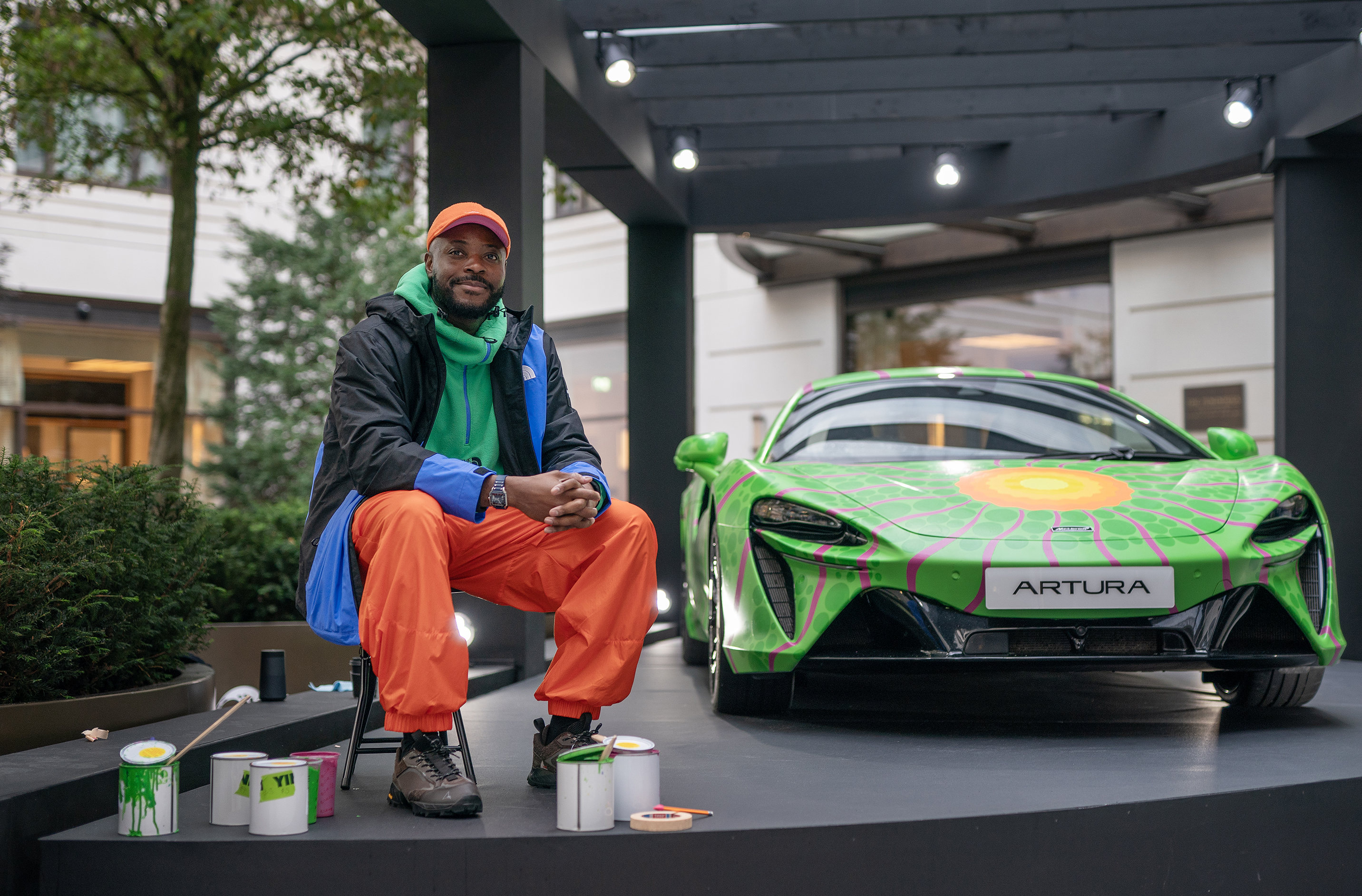
A recent collaboration between Yinka Ilori, McLaren and Art of Wishes (in support of Make-A-Wish) saw the British-Nigerian artist and designer apply his signature colour and form to the Artura’s flanks. It was a welcome dose of playfulness for a company often chided for a being a little humourless. Ilori’s floral-inspired patterns and forms were applied during a presentation at Frieze London 2024. It was a useful reminder that the very serious and hugely technical business of building a sophisticated sports cars needs an emotional component to bring it to life.
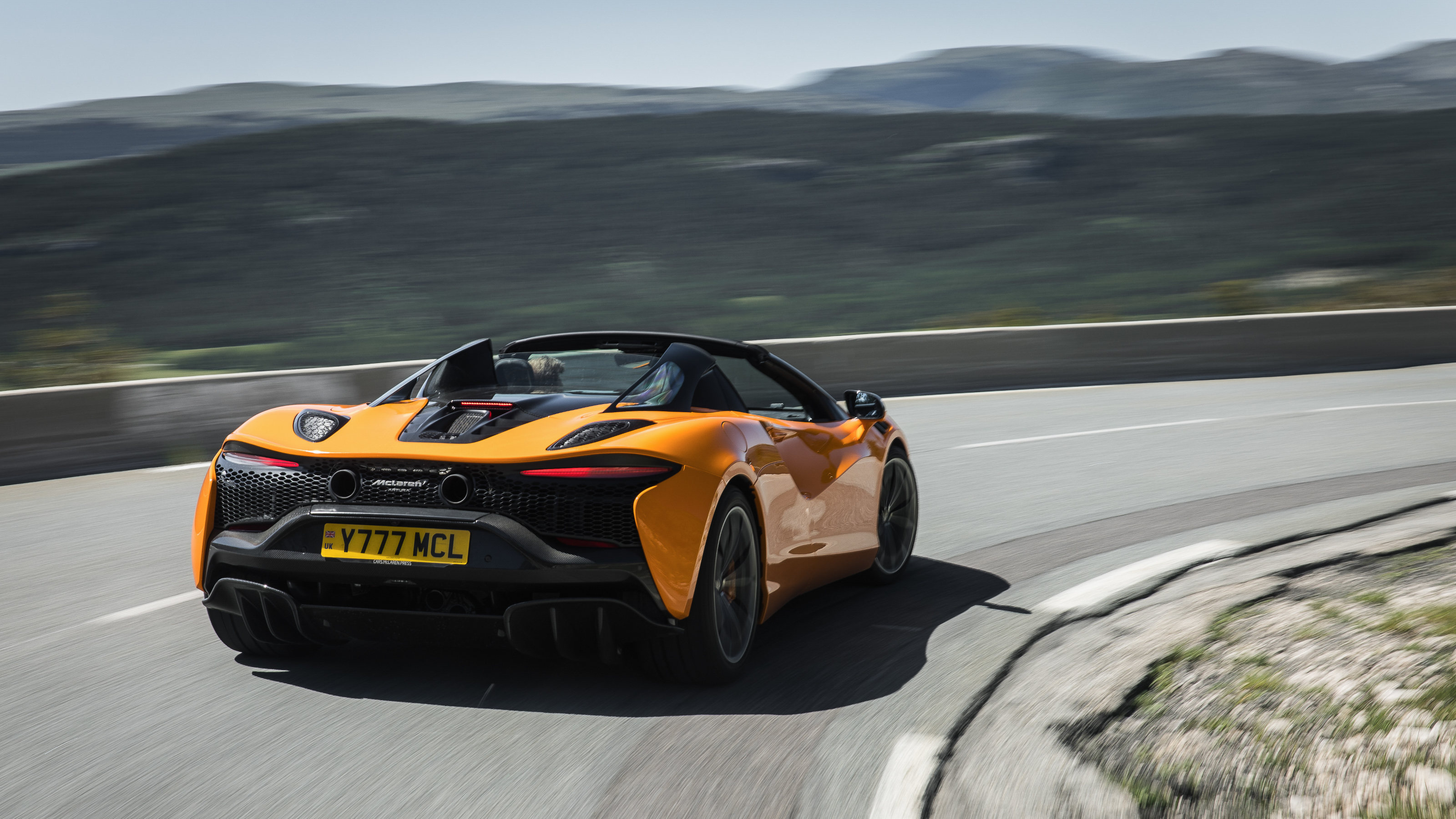
McLaren Artura Spider, from £221,500, Cars.McLaren.com, @McLarenAuto







